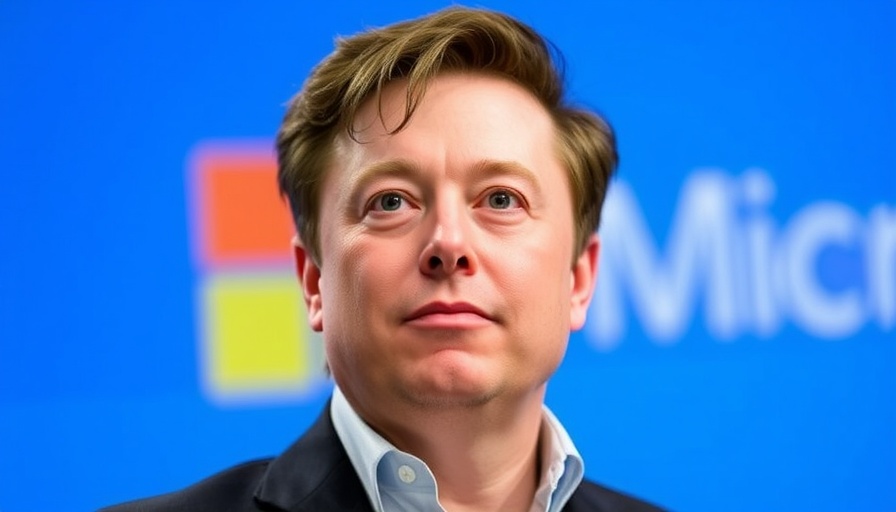
Unraveling the Mysteries of Elon Musk's Early Career
Recently, a seemingly offhand comment from Microsoft CEO Satya Nadella ignited a debate about the tech luminary Elon Musk's early career. During a Microsoft developer conference, Nadella mentioned that Musk started off as an intern at Microsoft, identifying him as a Windows developer and a passionate gamer. While this statement caught the audience's attention, it also raised eyebrows as many were unsure about the authenticity of this claim.
Despite Musk's acknowledgment in the video, he refrained from confirming the nature of the internship. This ambiguity led to a deep dive into Musk's past experiences, revealing no substantial evidence that he interned with Microsoft. Initial findings indicated Musk had worked for companies like Pinnacle Research Institute and Rocket Science Games, but the truth appears more complex.
A Closer Look at Musk’s Internship Claim
In the pursuit of clarity, reports surfaced from Walter Isaacson's recently published biography on Musk, which shed light on this intriguing segment of his life. According to Isaacson, after moving to Canada in 1989, Musk indeed interned at Microsoft’s Toronto office. This new detail resonates well with Nadella's remark but has been largely overlooked in the tech narrative.
This brings us to an interesting point about the legacy of tech giants; they are deeply interconnected through individuals like Musk, whose journey through various companies shapes the technology landscape as we know it today. The potential implications of this connection can be very intriguing.
The AI Landscape and Job Market Implications
As discussions surrounding Musk's history evolved, so did the context of artificial intelligence in the workplace. Microsoft is pivoting towards a future with AI integration, moving beyond its partnership with OpenAI to include Musk's Grok xAI models on Azure. This strategic shift reflects Microsoft's intention to be at the forefront of AI technology, which is critical as industries brace for rapid transformations in job structures.
With the introduction of AI agents designed for various applications, there comes a pressing concern about job cuts and layoffs across sectors. The technology is designed to streamline processes, potentially displacing individuals in roles that can be automated. As AI permeates more industries, workers face uncertainty about their job security.
Economic Concerns and Cautionary Tales
Amid the excitement surrounding tech advancements, an economic warning from Microsoft President Brad Smith highlights the need for caution. His comments following Washington’s controversial tax plans brought to light concerns about innovation and job creation in the tech industry. The combination of AI's rise and economic challenges presents a dual-edged sword. On one side, innovation can spur growth; on the other, it risks widening unemployment gaps.
As local economies, such as those in the Great Lakes and other regions, adapt to these changes, communities must discuss strategies to mitigate potential job losses. Understanding the line between embracing AI as a tool for efficiency and recognizing its capacity to disrupt traditional jobs is crucial.
How Communities Can Navigate the Changing Job Landscape
While tech-driven job changes appear intimidating, grassroots initiatives can play a pivotal role in shaping a more resilient workforce. Local organizations can facilitate upskilling and reskilling programs that prepare existing employees for AI-oriented positions while focusing on preserving the human element in work environments. Together, communities can foster partnerships with educational institutions to bridge skills gaps that arise from AI adoption.
Your Role in Building Tomorrow's Economy
Every individual has a stake in the shifting economic landscape brought by technological advancements, led by figures like Musk. Whether you’re a tech enthusiast, a business owner, or simply a community member, understanding these changes is vital. Embracing the future means engaging in conversations about innovation and advocating for policies that provide support in the face of potential upheavals.
Encourage participation in local tech discussions, raise awareness about job training programs, and support businesses that prioritize adaptability. Together, communities can craft a blueprint that balances innovation with human-centric values, securing a better future for all.
 Add Row
Add Row  Add
Add 




Write A Comment